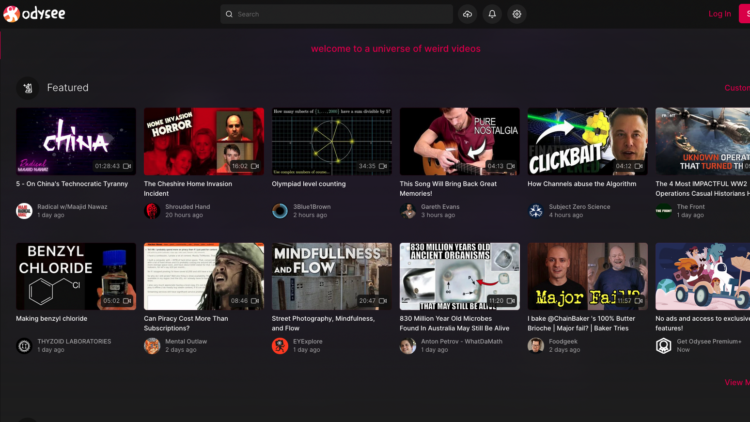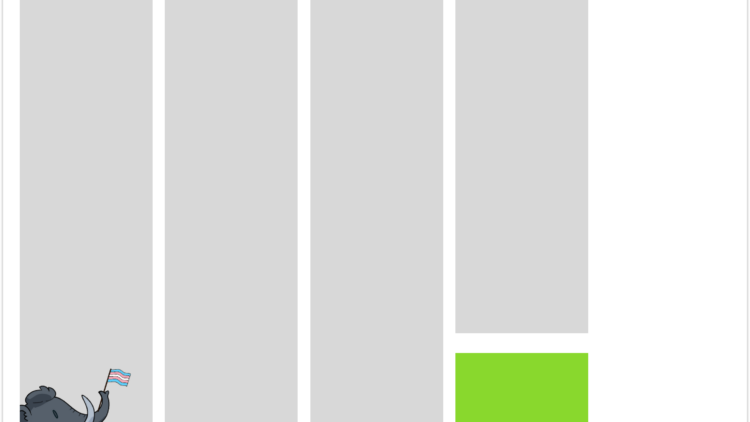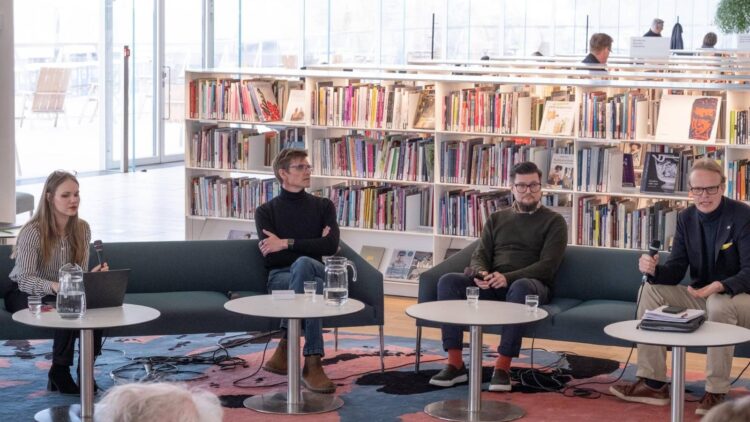CrossOver participated in the Digital Winter School 2023
CrossOver recently took part in the Digital Winter School, an event that offers an intensive one-week program focused on new media and digital methods.
CrossOver participated this January in the Digital Winter School and provided international students with its YouTube dataset. The Digital Methods Winter School is a one-week data sprint on a contemporary theme related to new media and digital methods in particular. It provided an opportunity for PhD candidates, advanced MA students and motivated scholars to work on a project together with the Amsterdam group of DMI researchers and/or international participants, occasionally drawn from previous Digital Methods Summer and Winter Schools.
This marked the first time CrossOver took part in such an event. The CrossOver team is thrilled to share the results of some students, hoping to participate in more events in which the project’s data can be analysed in the future.
Case study: Analysis of the “covid” keyword YouTube results throughout Belgium ?
One of the studies conducted by Inoussa Kora, Ramata Maiga, Perpetue Madungu et Busra Kulakli from the Gustave Eiffel University (Master Data Science and Numeric Society) under the supervision of Hajar Laglil (Cortext Manager engineer) was on the YouTube recommendation system using the query “covid.” The study analysed the tags and titles of YouTube videos and evaluated the deviation of the recommended video language from French to another language. The students also wanted to see which countries were related to YouTube’s recommendations from one level to another.
One analysis, using an automatic Modularity Class calculation in Gephy, of data collected from Limburg, Belgium, revealed that YouTube suggests COVID-related videos to users in this region, with many communities of videos found. These communities highlighted how the query “covid” can lead to various suggestions of videos about medical, comedy and funny, media, or political aspects of COVID.
Furthermore, using the platform Cortext Manager, students analyzed the geo-spatialisation of video content and discovered that for someone in Belgium searching for “covid” on YouTube, the videos recommended to them are mostly related to France, UK, Russia, Ukraine, Canada, Australia, India, China, Brazil, and the USA at the first level. The second layer of recommended videos includes the same countries as the first level, as well as additional countries such as Germany, Ivory Coast, and Afghanistan.
The findings of this study shed light on how the YouTube recommendation algorithm works, and how it can vary depending on factors like location and language. It is important to note that the results of this study may not be representative of all YouTube users, as they were based on a specific dataset and keyword search. Nevertheless, the study provides valuable insights into how recommendation algorithms work and their potential impact on the content people consume.
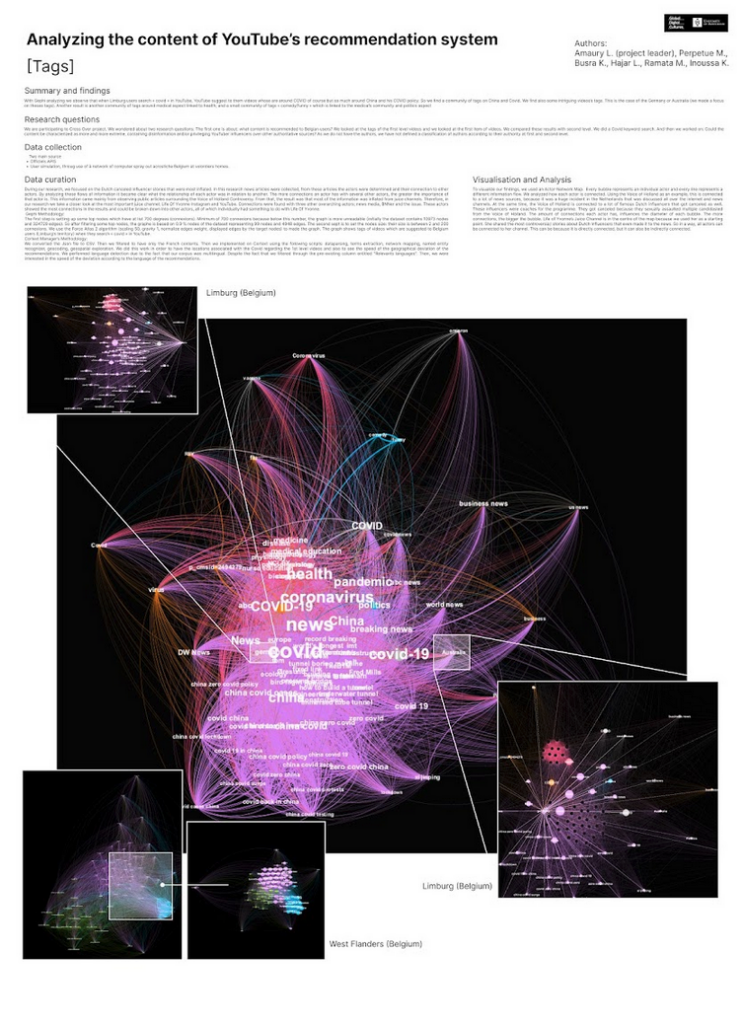
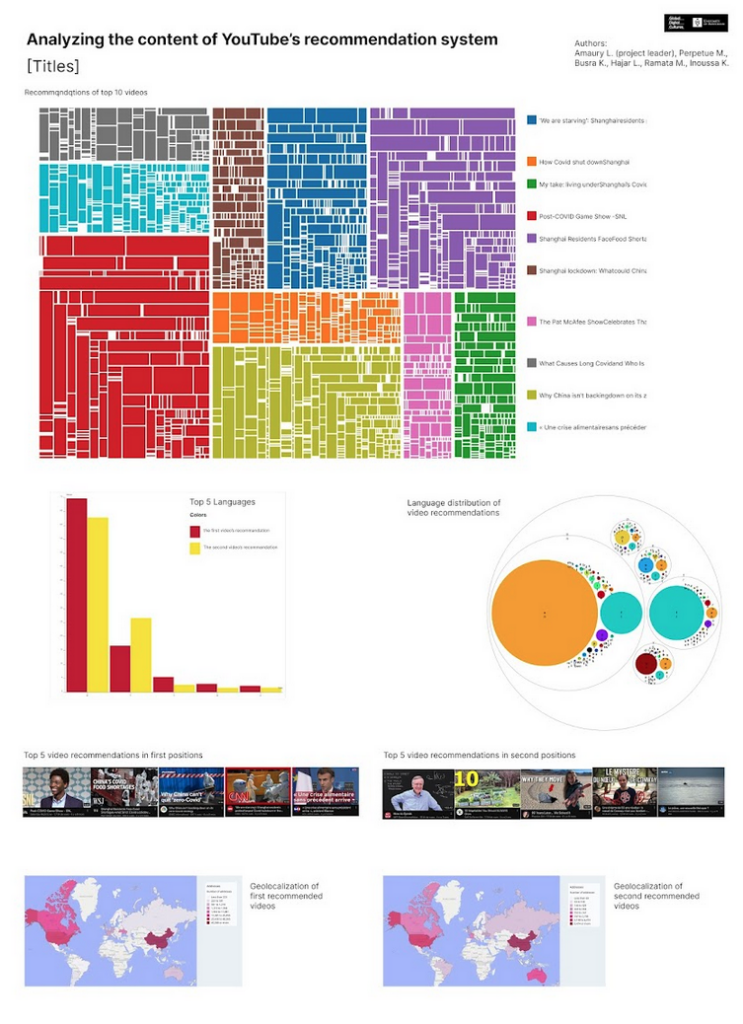
CrossOver’s participation in the Digital Winter School allowed for the sharing of valuable data and the opportunity to collaborate with students on important research projects. Hoping to participate in more events like this in the future, the project team can continue to contribute to the elevation of knowledge about content recommendation algorithms and their impact on society.
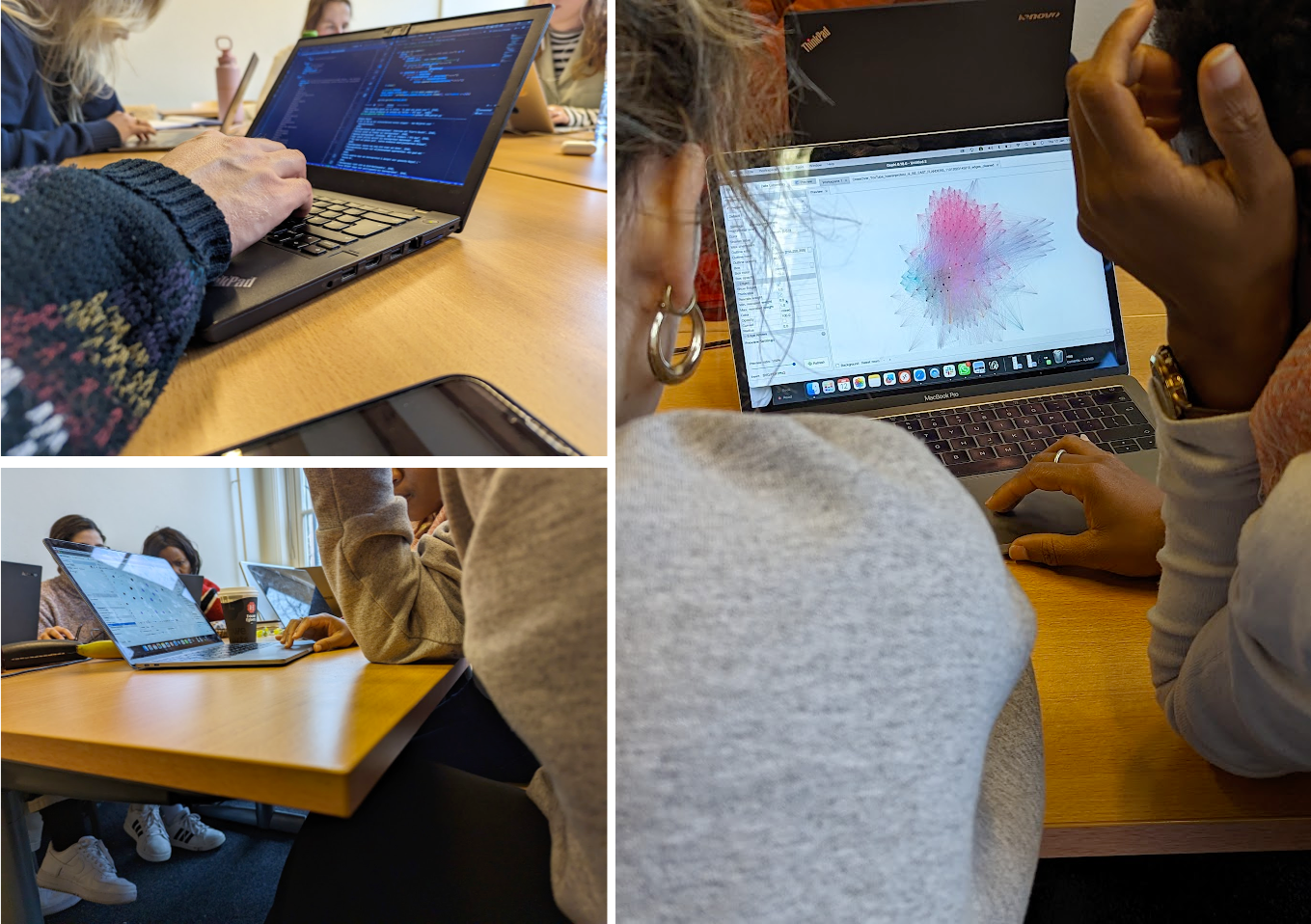
![[INTERVIEW] Apache](https://crossover.social/wp-content/uploads/2021/12/Apache-750x422.png)
